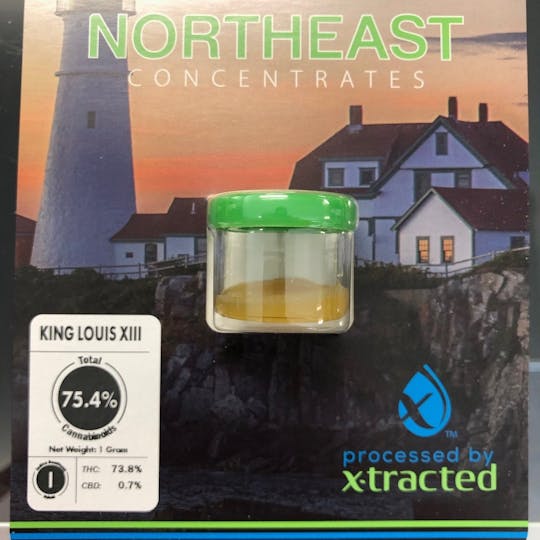
King Louis XIII Northeast
King Louis XIII might be most famous for making wigs on men de rigeur for the French aristocracy, but in Southern California the name will bring to mind a popular indica-dominant strain. This strain announces itself as many people did in the 1600s: by its smell. The difference is this monarch’s odor is one that’s meant to be enjoyed; its dense nugs have an overwhelmingly piney smell with an earthy musk that will have you thinking of your last forest adventure. Bred in part from OG Kush, Louis XIII has a very similar spicy kush aroma.
- Earthy
- Mango
- Pine
Officially incorporated in early 2012 in Seattle by a group of experienced cannabis producers with a focus on shaping the burgeoning industry. Originally founded on the mantra, safe for the processor, safe for the patient, Xtracted Labs worked closely with state and local officials to help form what ultimately would become the rules for the adult use market in Washington.
By pioneering good practices and high standards early on, Xtracted has established itself as an industry leader and maintained the position as a highly respected processor in one of the original legal markets in the country.
We use our experiences to help create a climate of safety, sensibility, and accountability throughout the entire cannabis industry while producing the worlds best concentrates!
We love Maine and have been here since late 2016. We look forward to continuing to bring you the best product possible in a vareity of products!
Also known as King Louis XIII, the strain is named for its royal caliber of THC, reportedly 20-to-28 percent based on weight. Growers report the strain comes from a rare cut of the Los Angeles-based OG Kush that was specially bred for higher potency. The cultivar features unmistakable OG characteristics -- a powerful diesel and skunk aroma, and sticky buds littered with trichomes. The strain thrives in both indoor and outdoor gardens, flowering in 60 days, or in late September, respectively. Novice growers may find Louis XIII difficult to handle, as it requires drier climates and plenty of attention to produce larger yields.